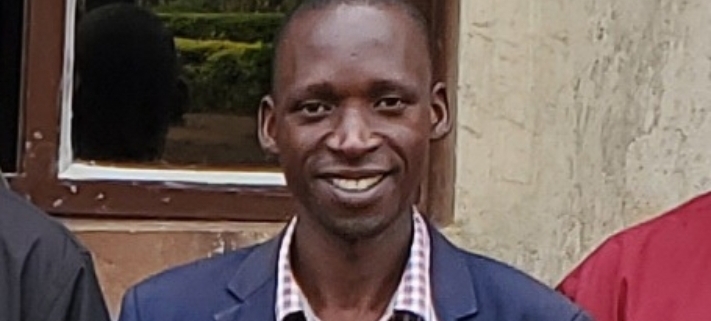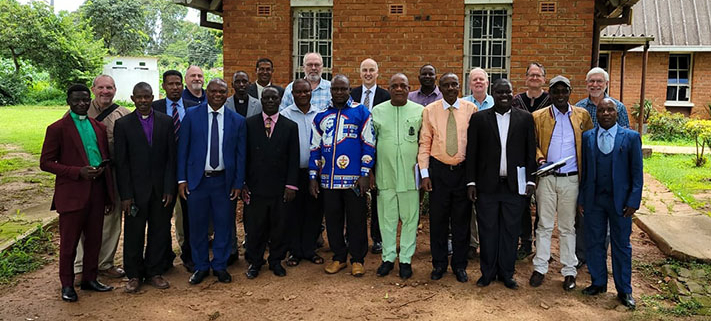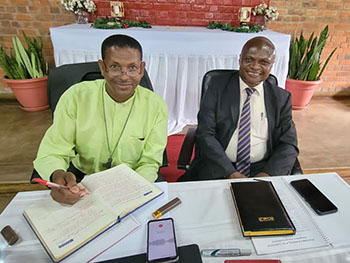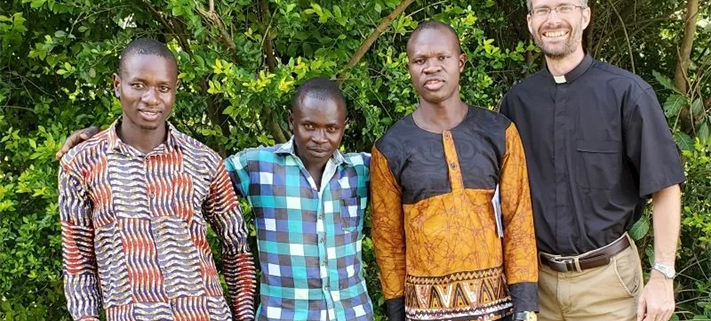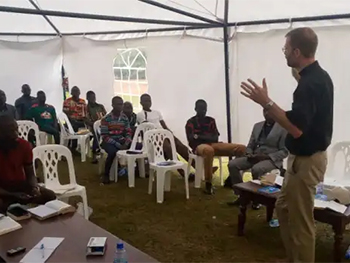Seeking and strengthening synods in Uganda
What do you get when you add together three Ugandan synods, two missionaries from the One Africa Team, and one representative from our WELS Commission on Inter-Church Relations (CICR)? A spiritually uplifting and productive cross-country journey!
At the beginning of April, Missionaries Foxen and Mohlke traveled to Uganda, rented a car, and struck out on unfamiliar roads to meet with representatives of two church bodies, or synods, who were seeking a relationship with WELS.
A synod in western Uganda
The first of these was the Confessional Lutheran Synod of Uganda (CLSU), headquartered in Ibanda in the hilly regions of western Uganda. The area was extremely pastoral, with beautifully green pasturelands and lots of cows. The leaders of the CLSU proved to be equally pastoral—very attentive to the spiritual needs of their people and eager to meet those needs to the best of their ability.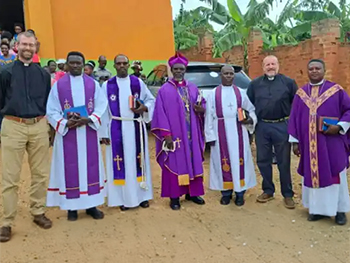
We visited a number of the local congregations and also got to see the site of their functioning seminary—a simple two rooms that housed a small library and a number of crowded bunks for students. A nearby church hall serves as their classroom.
The CLSU serves about 3,000 members with the gospel. Their seminary program has 7 students who will be graduating this December, with another 12 students ready to join the next intake.
A synod in central Uganda
After our time in Ibanda, we set out on the road again and headed east for eight hours to arrive in Jinja in central Uganda, on the north banks of Lake Victoria, one of the sources for the Nile River. Here, we met with representatives from another synod, the Evangelical Church of the Augsburg Confession in Uganda (ECACU). Though smaller than the CLSU (it serves about 950 members), we found them to be no less eager to share the truth of God’s Word with others in their communities.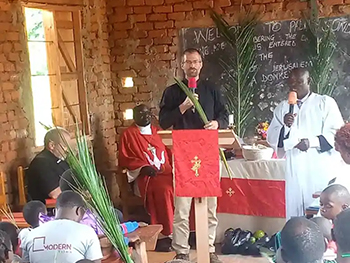
A large focus of their strategy for reaching out is schools, which they organize in communities that lack them. They then organize congregations out of the people making use of the schools. Their largest school serves about 300 children.
Our visits with the leaders of both ECACU and CLSU were very encouraging when it came to discussing our respective beliefs about Scripture and their focus on gospel ministry. We are looking forward to continuing discussions to see if fellowship with these synods will be possible.
The Obadiah Lutheran Synod
After our time was done with ECACU, we drove back to the airport, where I dropped off Missionary Mohlke and picked up MLC Professor Nicholas Schmoller, who also serves on the WELS CICR. The two of us then drove farther east, past Jinja to Bugiri, where our brothers in the Obadiah Lutheran Synod (OLS) are located.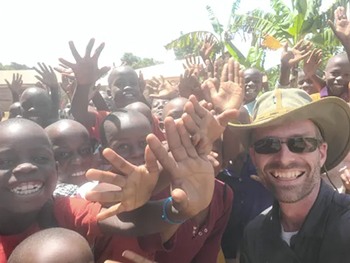
We were meeting with them to help them organize a written confession of faith, which would be used as they apply for membership in the Confessional Evangelical Lutheran Conference (CELC), the worldwide fellowship of churches of which WELS is a part. We spent three days with Pastor Musa and other leaders of the OLS, studying Scripture and putting on paper articles of faith especially important to them for their churches, communities, and context. The Lord blessed our work and allowed us to accomplish everything in the time we had available.
So, after 16 days on the road and about 1,300 kilometers driven, what did we have to show for it? New friendships established, old friendships reaffirmed, and more opportunities to marvel at the grace of our Lord Jesus, who makes us his coworkers in the ministry of his gospel! May he continue to bless our work with these three Ugandan synods!
Written by Ben Foxen, missionary on the One Africa Team
WELS Missions
Learn about the ministry work of WELS Missions.
SUPPORT MISSIONS
Support the ministry work of WELS Missions.

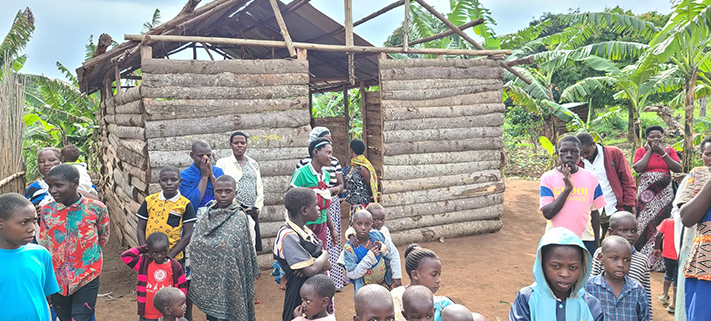
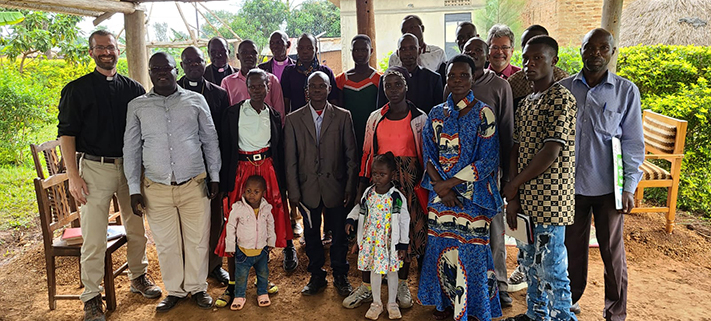
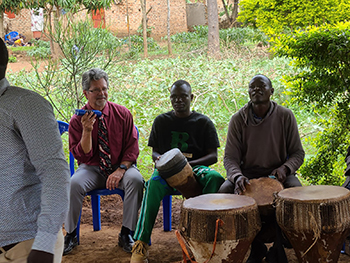
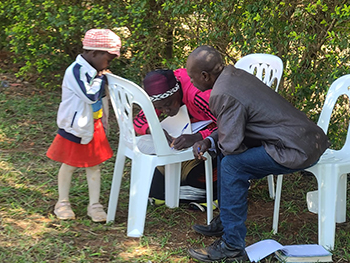
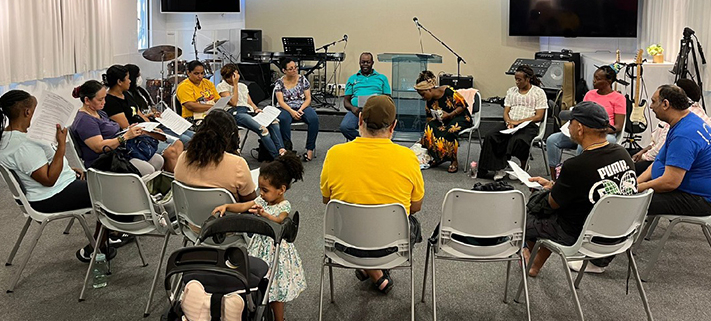
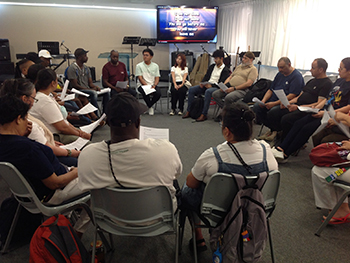
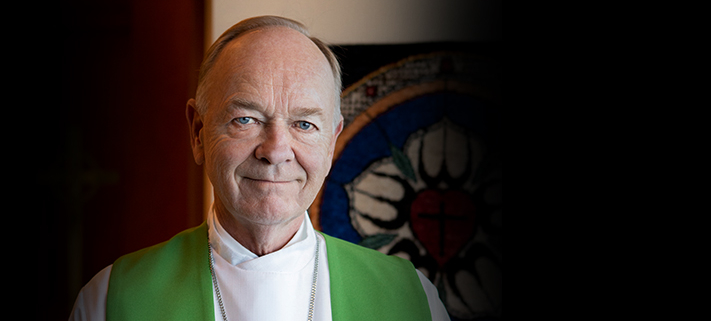
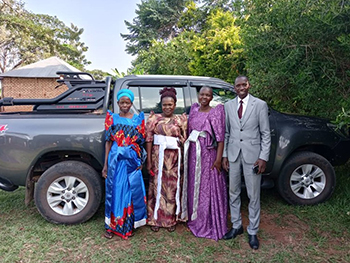 As you might expect, travel in Uganda can, at times, be very difficult due to bad weather and roads that can become nearly impassable. Since Pastor Makisimu Musa, the president of the synod, spends much time visiting the various congregations and pastors of his synod, reliable transportation is a vital necessity. Thanks to generous gifts from WELS members, the Obadiah Lutheran Synod was able to purchase a used Toyota Land Cruiser.
As you might expect, travel in Uganda can, at times, be very difficult due to bad weather and roads that can become nearly impassable. Since Pastor Makisimu Musa, the president of the synod, spends much time visiting the various congregations and pastors of his synod, reliable transportation is a vital necessity. Thanks to generous gifts from WELS members, the Obadiah Lutheran Synod was able to purchase a used Toyota Land Cruiser.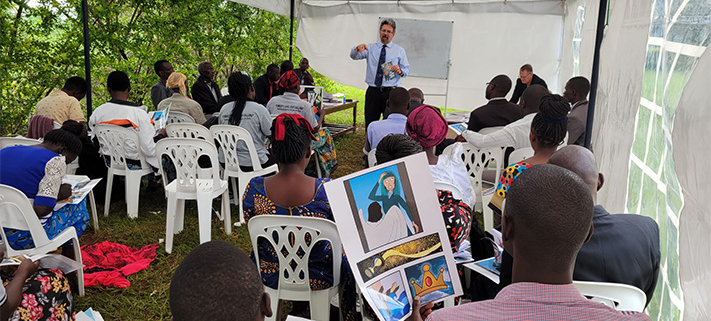
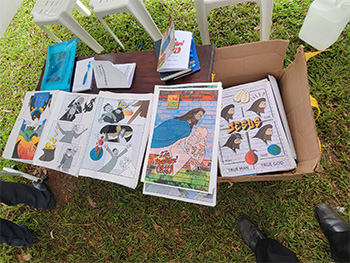
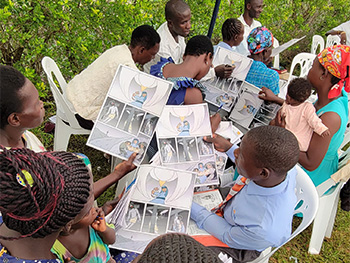
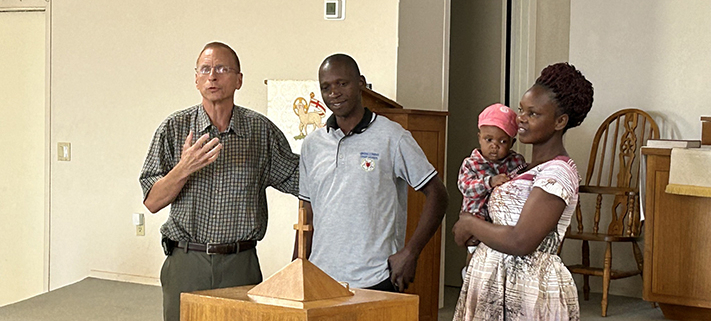
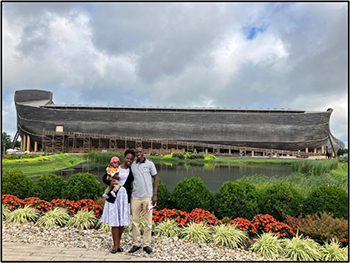
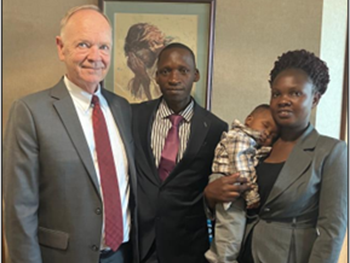
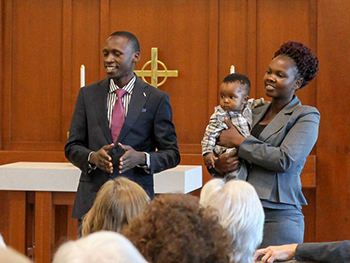 Those plans became a reality last week when Pastor Musa, along with his wife, Mary, and infant son Nathanael, arrived in the United States for a visit. Pastor Musa and his family were able to visit the WELS Center for Mission and Ministry (CMM) in Waukesha, Wis. While there he was able to meet with various WELS leaders and also had the opportunity to make a presentation about Obadiah Lutheran Synod to the workers at the CMM.
Those plans became a reality last week when Pastor Musa, along with his wife, Mary, and infant son Nathanael, arrived in the United States for a visit. Pastor Musa and his family were able to visit the WELS Center for Mission and Ministry (CMM) in Waukesha, Wis. While there he was able to meet with various WELS leaders and also had the opportunity to make a presentation about Obadiah Lutheran Synod to the workers at the CMM.